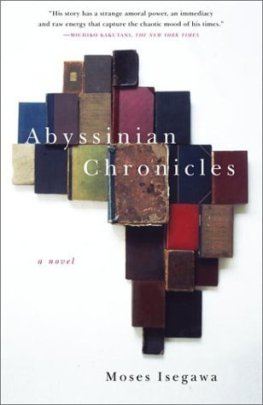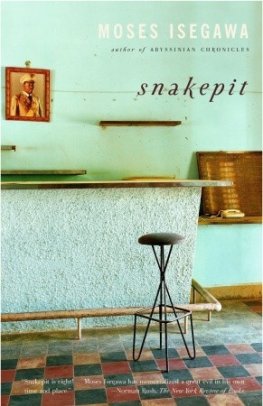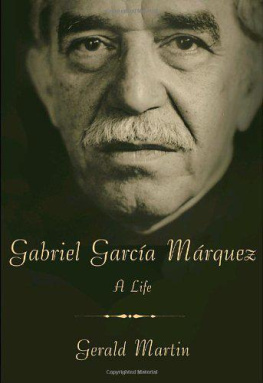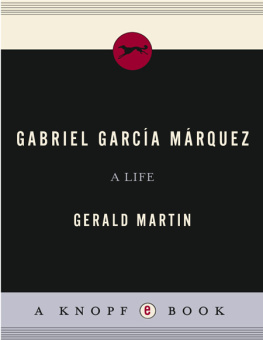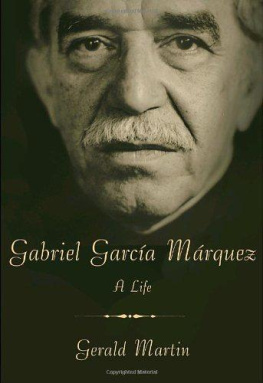Moses Isegawa - Abyssinian Chronicles
Here you can read online Moses Isegawa - Abyssinian Chronicles full text of the book (entire story) in english for free. Download pdf and epub, get meaning, cover and reviews about this ebook. year: 2001, publisher: Vintage Books USA, genre: Prose. Description of the work, (preface) as well as reviews are available. Best literature library LitArk.com created for fans of good reading and offers a wide selection of genres:
Romance novel
Science fiction
Adventure
Detective
Science
History
Home and family
Prose
Art
Politics
Computer
Non-fiction
Religion
Business
Children
Humor
Choose a favorite category and find really read worthwhile books. Enjoy immersion in the world of imagination, feel the emotions of the characters or learn something new for yourself, make an fascinating discovery.
- Book:Abyssinian Chronicles
- Author:
- Publisher:Vintage Books USA
- Genre:
- Year:2001
- Rating:3 / 5
- Favourites:Add to favourites
- Your mark:
- 60
- 1
- 2
- 3
- 4
- 5
Abyssinian Chronicles: summary, description and annotation
We offer to read an annotation, description, summary or preface (depends on what the author of the book "Abyssinian Chronicles" wrote himself). If you haven't found the necessary information about the book — write in the comments, we will try to find it.
Abyssinian Chronicles — read online for free the complete book (whole text) full work
Below is the text of the book, divided by pages. System saving the place of the last page read, allows you to conveniently read the book "Abyssinian Chronicles" online for free, without having to search again every time where you left off. Put a bookmark, and you can go to the page where you finished reading at any time.
Font size:
Interval:
Bookmark:
Moses Isegawa
Abyssinian Chronicles
ABOUT THE AUTHORS

MOSES ISEGAWA
ABYSSINIAN CHRONICLES
Moses Isegawa was born in Kampala, Uganda. In 1990, he left Uganda for the Netherlands and is now a Dutch citizen. This is his first novel.
MAIN CHARACTERS
Mugezi: narrator and principal character
Serenity: Mugezis father (also called Sere or Mpanama)
Padlock: Mugezis mother (real name Nakkazi, also called Virgin or Sr. Peter)
Grandpa: Serenitys father
Grandma: Grandpas sister, Serenitys aunt
Tiida: Serenitys eldest sister (also called Miss Sunlight Soap)
Dr. Saif Ssali: Tiidas husband
Nakatu: Serenitys other sister
Hajj Ali: Nakatus second husband
Kawayida: Serenitys half-brother
Lwandeka: Padlocks youngest sister
Kasawo: Padlocks other sister
Mbale: Padlocks eldest brother
Kasiko: Serenitys concubine
Nakibuka: Padlocks aunt, Serenitys mistress
Hajj Gimbi: Serenity and Padlocks neighbor in Kampala
Lusanani: Hajj Gimbis youngest wife, Mugezis lover in Kampala
Loverboy: client of Padlocks (real name Mbaziira)
Cane: Mugezis friend in primary school
Lwendo: Mugezis friend at the seminary
Fr. Kaanders: librarian at the seminary
Fr. Mindi: treasurer at the seminary
Fr. Lageau: Fr. Mindis successor
Jo Nakabiri: Mugezis lover in Kampala
Eva and Magdelein: Mugezis lovers in Holland
AFRICAN WORDS
boubou: a kind of wide garment for a man (West Africa)
busuti: a kind of womans garment (central Uganda)
kandooya: torture method whereby ones elbows are tied together behind ones back
Katonda wange!: My God!
kibanda: black market
Kibanda Boys: Kampala mafia
mamba: poisonous snake
matooke: plantain
mpanama: hydrocele
mtuba: an African tree
muko: brother-in-law
muteego: AIDS
nagana: a tropical cattle disease
panga: large cleaver
posho: corn bread
shamba: plantation
BOOK ONE. 1971: VILLAGE DAYS
THREE FINAL IMAGES flashed across Serenitys mind as he disappeared into the jaws of the colossal crocodile: a rotting buffalo with rivers of maggots and armies of flies emanating from its cavities; the aunt of his missing wife, who was also his longtime lover; and the mysterious woman who had cured his childhood obsession with tall women. The few survivors of my fathers childhood years remembered that up until the age of seven, he would run up to every tall woman he saw passing by and, in a gentle voice trembling with unspeakable expectation, say, Welcome home, Ma. You were gone so long I was afraid you would never return. Taken by surprise, the woman would smile, pat him on the head, and watch him wring his hands before letting him know that he had once again made a mistake. The women in his fathers homestead, assisted by some of the villagers, tried to frighten him into quitting by saying that one day he would run into a ghost disguised as a tall woman, which would take him away and hide him in a very deep hole in the ground. They could have tried milking water from a stone with better results. Serenity, a wooden expression on his face, just carried on running up to tall women and getting disappointed by them.
Until one hot afternoon in 1940 when he ran up to a woman who neither smiled nor patted him on the head; without even looking at him, she took him by the shoulders and pushed him away. This mysterious curer of his obsession won herself an eternal place in his heart. He never ran up to tall women again, and he would not talk about it, not even when Grandma, his only paternal aunt, promised to buy him sweets. He coiled into his inner cocoon, from whose depths he rejected all efforts at consolation. A smooth, self-contained indifference descended on his face so totally that he won himself the name Serenity, shortened to Sere.
Serenitys mother, the woman who in his mind had metamorphosed into all those strange tall women, had abandoned him when he was three, ostensibly to go to the distant shops beyond Mpande Hill where big purchases were made. She never returned. She also left behind two girls, both older than Serenity, who adjusted to her absence with great equanimity and could not bear his obsession with tall women.
In an ideal situation, Serenity should have come first everyone wanted a son for the up-and-coming subcounty chief Grandpa was at the time but girls kept arriving, two dying soon after birth in circumstances reeking of maternal desperation. By the time Serenity was born, his mother had decided to leave. Everyone expected her to have another son as a backup, for an only son was a candle in a storm. The pressure reached a new peak when it became known that she was pregnant again. Speculation was rife: Would it be a boy or a girl, would it live or die, was it Grandpas or did it belong to the man she was deeply in love with? Before anybody could find out the truth, she left. But her luck did not hold three months into her new life, her uterus burst, and she bled to death on the way to the hospital, her life emptying into the backseat of a rotten Morris Minor.
As time passed, Serenity crawled deeper into his cocoon, avoiding his aunts, his cousins, and his mothers replacements, who he felt hated him for being the heir apparent to his fathers estate and the miles of fertile clan land it included. The birth of Uncle Kawayida, his half-brother by a Muslim woman his father was seeing on the side, did not lessen Serenitys estrangement. Kawayida, due to the circumstances of his birth, posed little threat to Serenitys position, and thus attitudes remained unchanged. To escape the phantoms which galloped in his head and the contaminated air in his fathers compound, Serenity roamed the surrounding villages. He spent a lot of time at the home of the Fiddler, a man with large feet, a large laugh and sharp onion breath who serenaded Grandpa on the weekends when he was home.
Serenity could not get over the way the Fiddler walked with legs wide apart. It would have been very impolite to ask the man why he walked that way, and Serenity feared that if he asked his children, they would tell their father, who in turn would report him to his father for punishment. Consequently, he turned to his aunt with the question Why does the Fiddler have breasts between his legs?
Who said the Fiddler had breasts between his legs?
Have you never noticed the way he walks?
How does he walk?
With legs spread wide apart as if he were carrying two jackfruits under his tunic. He then gave a demonstration, very exaggerated, of the way the man walked.
It is very funny, but I have never noticed it, Grandma said, humoring him the way adults did to get out of a sticky situation.
How could you not have noticed? He has large breasts between his legs.
The Fiddler has no breasts between his legs. He is ill. He has got mpanama.
Serenitys sisters somehow got wind of the duckwalk and could not resist telling their village peers and schoolmates about the Fiddler, his breasts, and the little clown who portrayed him in silly mimicries. As a result, Serenity got the nickname Mpanama, a ghastly sounding word used out of adult hearing that dropped from gleeful lips with the wet slap of dung hitting hard ground from the rear of a half-constipated cow. Once again he was cured of an obsession, though he continued with his visits to the poor mans home, faintly hoping to catch him pissing or, better still, squatting on the latrine, for he really wanted to see if the Fiddlers breasts were as large and smooth as those of the women in his fathers homestead.
Font size:
Interval:
Bookmark:
Similar books «Abyssinian Chronicles»
Look at similar books to Abyssinian Chronicles. We have selected literature similar in name and meaning in the hope of providing readers with more options to find new, interesting, not yet read works.
Discussion, reviews of the book Abyssinian Chronicles and just readers' own opinions. Leave your comments, write what you think about the work, its meaning or the main characters. Specify what exactly you liked and what you didn't like, and why you think so.

